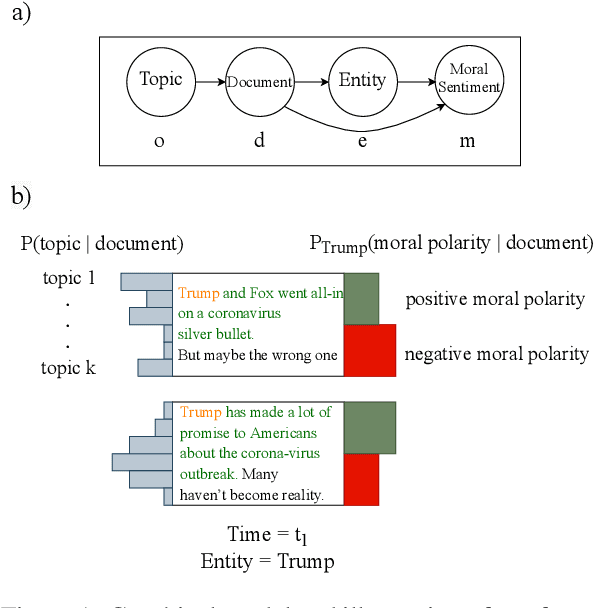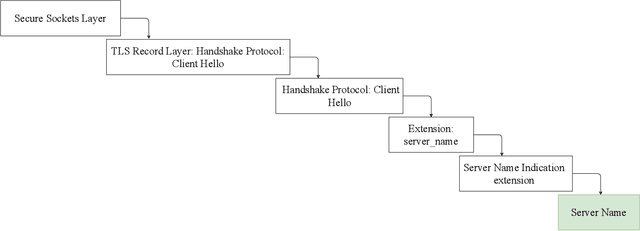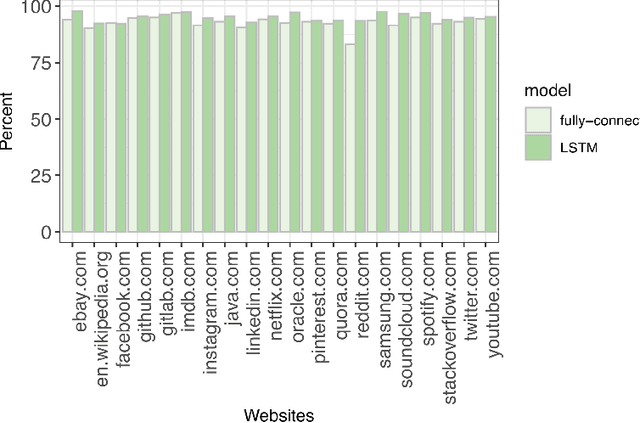Aida Ramezani
Visual moral inference and communication
Apr 12, 2025Abstract:Humans can make moral inferences from multiple sources of input. In contrast, automated moral inference in artificial intelligence typically relies on language models with textual input. However, morality is conveyed through modalities beyond language. We present a computational framework that supports moral inference from natural images, demonstrated in two related tasks: 1) inferring human moral judgment toward visual images and 2) analyzing patterns in moral content communicated via images from public news. We find that models based on text alone cannot capture the fine-grained human moral judgment toward visual stimuli, but language-vision fusion models offer better precision in visual moral inference. Furthermore, applications of our framework to news data reveal implicit biases in news categories and geopolitical discussions. Our work creates avenues for automating visual moral inference and discovering patterns of visual moral communication in public media.
Knowledge of cultural moral norms in large language models
Jun 02, 2023



Abstract:Moral norms vary across cultures. A recent line of work suggests that English large language models contain human-like moral biases, but these studies typically do not examine moral variation in a diverse cultural setting. We investigate the extent to which monolingual English language models contain knowledge about moral norms in different countries. We consider two levels of analysis: 1) whether language models capture fine-grained moral variation across countries over a variety of topics such as ``homosexuality'' and ``divorce''; 2) whether language models capture cultural diversity and shared tendencies in which topics people around the globe tend to diverge or agree on in their moral judgment. We perform our analyses with two public datasets from the World Values Survey (across 55 countries) and PEW global surveys (across 40 countries) on morality. We find that pre-trained English language models predict empirical moral norms across countries worse than the English moral norms reported previously. However, fine-tuning language models on the survey data improves inference across countries at the expense of a less accurate estimate of the English moral norms. We discuss the relevance and challenges of incorporating cultural knowledge into the automated inference of moral norms.
An unsupervised framework for tracing textual sources of moral change
Sep 01, 2021



Abstract:Morality plays an important role in social well-being, but people's moral perception is not stable and changes over time. Recent advances in natural language processing have shown that text is an effective medium for informing moral change, but no attempt has been made to quantify the origins of these changes. We present a novel unsupervised framework for tracing textual sources of moral change toward entities through time. We characterize moral change with probabilistic topical distributions and infer the source text that exerts prominent influence on the moral time course. We evaluate our framework on a diverse set of data ranging from social media to news articles. We show that our framework not only captures fine-grained human moral judgments, but also identifies coherent source topics of moral change triggered by historical events. We apply our methodology to analyze the news in the COVID-19 pandemic and demonstrate its utility in identifying sources of moral change in high-impact and real-time social events.
On Multi-Session Website Fingerprinting over TLS Handshake
Sep 19, 2020



Abstract:Analyzing users' Internet traffic data and activities has a certain impact on users' experiences in different ways, from maintaining the quality of service on the Internet and providing users with high-quality recommendation systems to anomaly detection and secure connection. Considering that the Internet is a complex network, we cannot disintegrate the packets for each activity. Therefore we have to have a model that can identify all the activities an Internet user does in a given period of time. In this paper, we propose a deep learning approach to generate a multi-label classifier that can predict the websites visited by a user in a certain period. This model works by extracting the server names appearing in chronological order in the TLSv1.2 and TLSv1.3 Client Hello packets. We compare the results on the test data with a simple fully-connected neural network developed for the same purpose to prove that using the time-sequential information improves the performance. For further evaluations, we test the model on a human-made dataset and a modified dataset to check the model's accuracy under different circumstances. Finally, our proposed model achieved an accuracy of 95% on the test dataset and above 90% on both the modified dataset and the human-made dataset.
 Add to Chrome
Add to Chrome Add to Firefox
Add to Firefox Add to Edge
Add to Edge